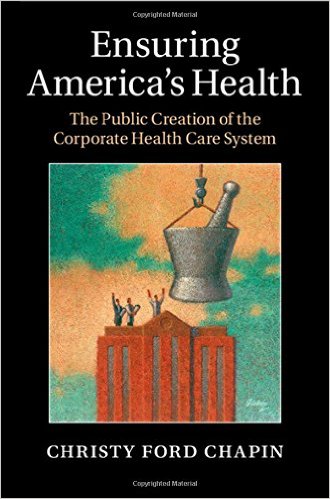Christy Chapin, an assistant professor of history, recently joined the Harvard University podcast This Week in Health Law for a discussion about the history of health care in the United States. Chapin is author of the new book Ensuring America’s Health: The Public Creation of the Corporate Health Care System, which was published earlier this year by Cambridge University Press.
 The wide-ranging interview covered several topics including how many ideas to save costs today are similar to ideas presented in the decades spanning the 20th century, what health policy would look like if it were better informed by history, and the validity of the conventional wisdom on the post World War II rise of employer-sponsored health insurance.
The wide-ranging interview covered several topics including how many ideas to save costs today are similar to ideas presented in the decades spanning the 20th century, what health policy would look like if it were better informed by history, and the validity of the conventional wisdom on the post World War II rise of employer-sponsored health insurance.
“People often connect the employer provision almost solely to World War II wage and price controls saying it really took off then because employers wanted to attract scarce labor. They had wage controls, and they could at least offer these benefits,” Chapin explained in the podcast. “But in reading other historians…they took issue with that. I went back and looked at the statistics and found that you do see some growth in health insurance during World War II, but nothing unusual.”
Chapin noted that a lot of the growth was due to the benefit that employers received from the government in the indirect form of subsidization.
Listen to the complete interview on Harvard’s This Week in Health Law website.
